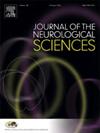Folate, vitamin B12, one carbon metabolism and the nervous system
IF 3.2
3区 医学
Q1 CLINICAL NEUROLOGY
引用次数: 0
Abstract
Folate, vitamin B12 and one carbon metabolism are fundamental to genetics and epigenetics, and to nervous system development and brain health at all ages. The neuropsychiatric complications of deficiency or inborn errors of folate and vitamin B12 are well documented but there has been controversy about whether excess folic acid is also harmful to the nervous system, especially in the presence of vitamin B12 deficiency.
There is now substantial and consistent clinical, epidemiological and experimental evidence that excess folic acid is potentially harmful to the nervous system. Recent experimental evidence confirms that both folate deficiency and excess impair cortical neurogenesis and is greatest when vitamin B12 deficiency is combined with excess folic acid. Excess folic acid increases the demand for vitamin B12 and aggravates the block in the folate cycle resulting from vitamin B12 deficiency. The balance between folate and vitamin B12 is crucial to methylation and to genetics and epigenetics. Both folate deficiency and excess may impair cellular differentiation and nervous system development by hypomethylation or hypermethylation of genes. In countries with folic acid fortification policies many subjects are exposed to excess folate. The long term genetic, epigenetic and transgenerational implications are yet to be clarified. The safe UL of folic acid should be reconsidered in relation to the vitamin B12 status of individuals and populations. The combination of a natural folate together with vitamin B12 would greatly improve the benefits and reduce the harms of current fortification policies.
叶酸,维生素B12,一碳代谢和神经系统
叶酸、维生素B12和一碳代谢是遗传学和表观遗传学的基础,也是各年龄段神经系统发育和大脑健康的基础。叶酸和维生素B12缺乏或先天缺陷导致的神经精神并发症有充分的文献记载,但关于过量的叶酸是否也对神经系统有害,特别是在维生素B12缺乏的情况下,一直存在争议。现在有大量和一致的临床、流行病学和实验证据表明,过量的叶酸可能对神经系统有害。最近的实验证据证实,叶酸缺乏和过量都会损害皮质神经发生,当维生素B12缺乏与过量叶酸结合时,这种损害最大。过量的叶酸增加了对维生素B12的需求,并加剧了维生素B12缺乏导致的叶酸循环阻塞。叶酸和维生素B12之间的平衡对甲基化、遗传学和表观遗传学都至关重要。叶酸缺乏和过量都可能通过基因的低甲基化或高甲基化损害细胞分化和神经系统发育。在有叶酸强化政策的国家,许多受试者暴露于过量的叶酸中。长期的遗传、表观遗传和跨代影响还有待澄清。叶酸的安全UL应根据个人和人群的维生素B12状况重新考虑。将天然叶酸与维生素B12结合将大大提高目前强化政策的益处并减少危害。
本文章由计算机程序翻译,如有差异,请以英文原文为准。
求助全文
约1分钟内获得全文
求助全文
来源期刊

Journal of the Neurological Sciences
医学-临床神经学
CiteScore
7.60
自引率
2.30%
发文量
313
审稿时长
22 days
期刊介绍:
The Journal of the Neurological Sciences provides a medium for the prompt publication of original articles in neurology and neuroscience from around the world. JNS places special emphasis on articles that: 1) provide guidance to clinicians around the world (Best Practices, Global Neurology); 2) report cutting-edge science related to neurology (Basic and Translational Sciences); 3) educate readers about relevant and practical clinical outcomes in neurology (Outcomes Research); and 4) summarize or editorialize the current state of the literature (Reviews, Commentaries, and Editorials).
JNS accepts most types of manuscripts for consideration including original research papers, short communications, reviews, book reviews, letters to the Editor, opinions and editorials. Topics considered will be from neurology-related fields that are of interest to practicing physicians around the world. Examples include neuromuscular diseases, demyelination, atrophies, dementia, neoplasms, infections, epilepsies, disturbances of consciousness, stroke and cerebral circulation, growth and development, plasticity and intermediary metabolism.
 求助内容:
求助内容: 应助结果提醒方式:
应助结果提醒方式:


